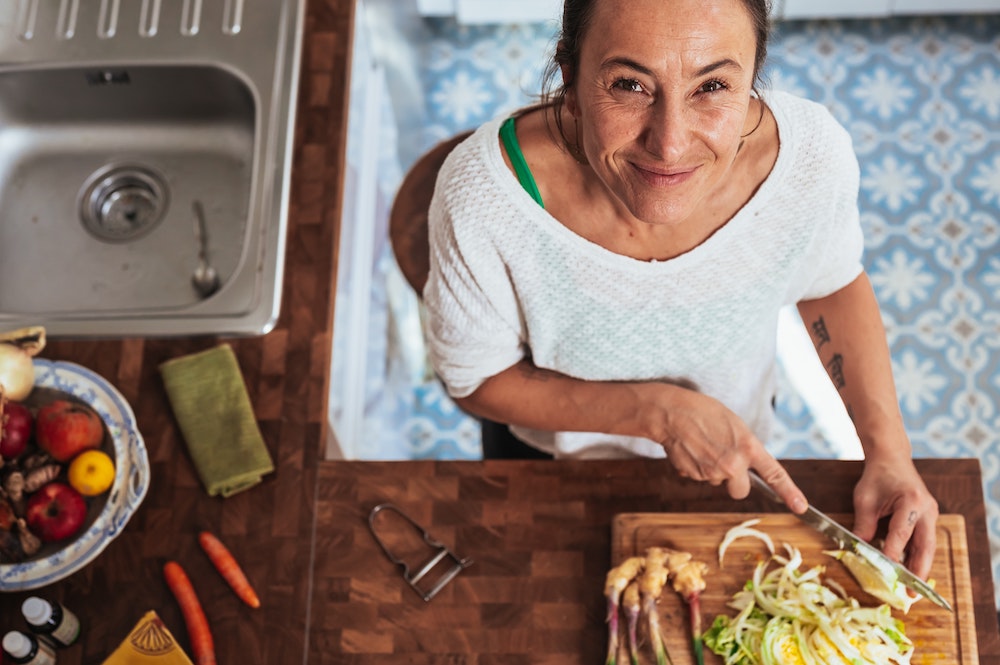

· By Keryce Henry
Ulcerative Colitis Diet: What to Eat and Avoid
There’s no definite answer as to why ulcerative colitis happens. One thing experts do know is that your diet can play a fundamental role in the severity of your symptoms—specifically, what you eat during flare-ups versus between them. It might sound complicated, but we’re here to help!
Here are some recommendations for what you should eat if you have ulcerative colitis, specifically during and between flare-ups.
Before making any changes to your diet, consult with your doctor about getting a meal plan together.
What should I eat between ulcerative colitis flare-ups?
First and foremost, every UC patient is different. Before making any changes to your diet, consult with your doctor about getting a meal plan together. You may also want to keep a food diary in order to help monitor what foods you ate before a flare-up, so you know what to avoid.
Here’s what foods and nutrients some experts suggest for ulcerative colitis patients when they’re not experiencing flare-ups.
A balanced diet (including fiber!).
When you’re not experiencing an ulcerative colitis flare-up, it’s important to eat a well-balanced diet. The foods you eat should have the following nutrients:
- Protein
- Fiber
- Calcium
- Folic acid
- Vitamin B12
You can get also get these nutrients from supplements. (For fiber supplements, you want to go with soluble fiber, not insoluble. Soluble fiber, like the psyllium husk in Bellway supplements, has a lower likelihood of triggering ulcerative colitis symptoms compared to insoluble fiber.) Before adding any supplements to your diet, confirm with your doctor that they’re right for you.
Anti-inflammatory foods.
Some research shows that there are certain nutrients that are especially beneficial for ulcerative colitis patients because they may be able to combat the inflammation that it causes. Some of these include:
- Linoleic acid, like from walnuts, egg yolks, and olive and coconut oil (just don’t overdo it!)
- Eicosapentaenoic acid (EPA), a type of omega-3 fatty acid that can be found in fish oil
- Probiotics, which contain healthy bacteria that protects your gut
What foods should I eat during an ulcerative colitis flare-up?
When you are experiencing an ulcerative colitis flare-up, experts suggest you stick to foods that are less likely to aggravate your gut. Some of these include:
- White rice, bread, and pasta
- Crackers and cereals made with refined white flour
- Cooked veggies without the skin (or even veggie soup)
- Tender, soft meats and fish
- Olive and coconut oil
- Eggs
- Lots and lots of fluids, since an ulcerative colitis flare-up can lead to diarrhea and thus dehydration
These foods have been found to be easily digestible in some ulcerative colitis patients, but be cautious when adding them to your diet since they can be triggers in other patients:
- Squash
- Avocados
- Probiotics
- Plain instant oatmeal
When you are experiencing an ulcerative colitis flare-up, experts suggest you stick to foods that are less likely to aggravate your gut.
What foods should I avoid during an ulcerative colitis flare-up?
These foods have been linked to worsened ulcerative colitis symptoms, diarrhea, or excessive gas, which can make colitis flare-ups even more uncomfortable:
- Caffeine
- Dairy
- Alcohol
- Sodas and beer
- High-fiber foods, including brown rice, nuts, beans, and seeds
- Foods with sulfur or sulfites
- Potatoes
- Fatty meat
- Fructose
- Spicy food
- Gluten
- Fruit with skin or seeds that can’t be removed (like strawberries)
The bottom line.
Think of this as a primer to an ulcerative colitis diet. Since flare-up triggers are different in everyone, talk to your doctor before making any changes to your diet or supplement regimen.

